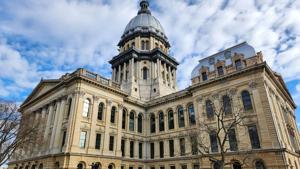Congress returns, but Trump’s ‘pocket rescissions’ snarls govt funding process
It’s Congress’ first day back in session, but President Donald Trump’s clawback of nearly $5 billion in congressionally-approved spending has alienated Democrats, whose cooperation is crucial to avert a government shutdown.
Lawmakers have until Sept. 30 – the end of fiscal year 2025 – to pass all 12 annual appropriations bills that provide funding for federal agencies to spend on programs. If lawmakers do not pass all 12 in some form through both chambers of Congress, they risk a government shutdown.
So far, not a single appropriations bill has received approval from both chambers. Only two appropriations bills have passed the House, while a three-bill minibus passed the Senate right before lawmakers recessed.
The chambers also disagree on funding levels for different agencies, a major problem given that they must eventually approve identical bills. And while Senate Republicans have worked bipartisanly, House Republicans have largely disregarded Democrats.
Trump’s decision Friday to cancel $4.9 billion in foreign aid using the Impoundment Control Act further cemented Democrats’ resentment. Senate Minority Leader Chuck Schumer, D-N.Y., accused Republicans in his Tuesday letter to colleagues of “once again threatening to go-at-it-alone—heading our country towards a shutdown.”
He further warned that the “only way to avoid a shutdown is to work in a bipartisan way, with a bill that can get both Republican and Democratic votes in the Senate.”
Neither party wants to take the blame for a government shutdown, but even if lawmakers immediately put aside their differences, they no longer have time to pass all 12 appropriations bills. Congress does not even have the full remaining 28 days to finish the process, given that lawmakers will recess the week of Sept. 22 for the Rosh Hashanah holiday.
At this point, lawmakers’ only option to keep the government open past Sept. 30 is to pass yet another Continuing Resolution, the fourth time Congress will have punted on funding the government properly. Lawmakers never passed a fiscal year 2025 budget, instead passing three consecutive CRs to keep the previous year’s funding on cruise control until Sept. 30.
Depending on how many appropriations bills pass both chambers before the shutdown deadline – for example, the House could approve the Senate’s minibus – the CR could apply to the remaining federal agencies, rather than extending current funding levels across the entire federal government.
Another question is how long a CR would last. Republicans would find a shorter, perhaps month-long CR much more palatable than a year-long extension. Some lawmakers, like Rep. Thomas Massie, R-Ky., have already pledged to oppose any kind of CR.
Latest News Stories

DOJ: Illegal immigrant charged with assault

Manufacturing advocate: ‘Follow the actions’ with Pritzker on taxes

Illinois quick hits: National Guard restraining order extended; economic growth above trend

US and Qatar say EU climate regulations could impact LNG supplies

U.S. debt tops $38 trillion for first time

Trump defends tariffs, tells beef producers to lower prices

VA secretary pleads with Democrats to end the shutdown

WATCH: Pritzker opposes redistricting Illinois mid-cycle as other states move forward

Record-long govt shutdown threatens food, early childhood education assistance

Sen. Scott Wiener announces he’s running for Pelosi’s seat

Cities sue Trump administration for tying funds to DEI

Federal shutdown sidelines 34,000 workers in Colorado














